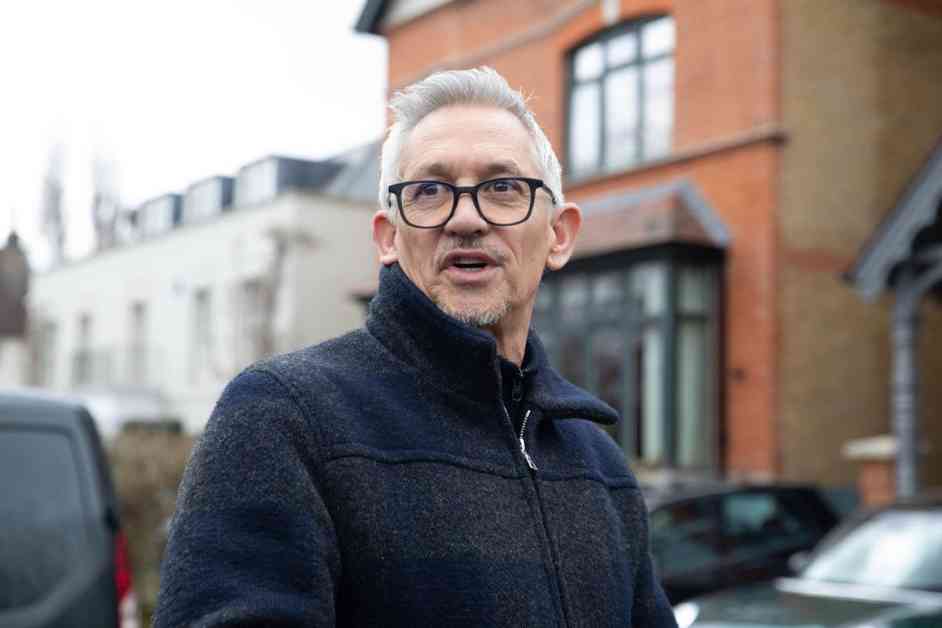Gary Lineker, a well-known footballer and presenter, has had a remarkable career journey. He started his career at his hometown club Leicester in 1978, where he made a name for himself by scoring over a century of goals and playing more than 200 games. In 1985, Lineker moved to Everton and scored 40 goals during the 1985/86 campaign. The following year, he won the Golden Boot at the Mexico World Cup and was named Footballer of the Year.
In 1989, Lineker signed with Tottenham for a fee of £1.2 million and won the FA Cup in 1991. He retired in 1994 after playing for J-League side Nagoya Grampus Eight. Lineker then transitioned into a successful broadcasting career, taking over as the lead presenter of Match Of The Day in 1999.
Throughout his career, Lineker has been involved in various controversies. In 2016, he fulfilled a pledge to appear on screen in his underpants after Leicester won the Premier League. He has also been vocal about political issues, such as Brexit and immigration policy, which has led to criticism from some quarters.
In 2022, Lineker faced an impartiality row at the BBC after posting a tweet critical of the Conservative Party’s approach to the Champions League final in Russia. The BBC’s Executive Complaints Unit upheld a complaint against Lineker, stating that he did not meet the corporation’s editorial standards on impartiality.
Despite the controversies, Lineker continued to use his platform to raise awareness about important issues. In 2023, he criticized the government’s asylum policy, leading to a brief suspension from Match Of The Day. However, he was later reinstated after an apology from the BBC.
In November 2024, Lineker announced that he would be leaving his role as the presenter of Match Of The Day at the end of the season. He will then depart from the BBC after covering the 2026 World Cup. Lineker’s departure marks the end of an era for football broadcasting, as he has been a prominent figure in the industry for many years.
Lineker’s career highlights reflect his success both on the pitch and in front of the camera. Despite facing challenges and controversies along the way, he has remained a beloved figure in the world of football and broadcasting. His contributions to the sport and his advocacy on important issues have left a lasting impact on fans and viewers alike.

